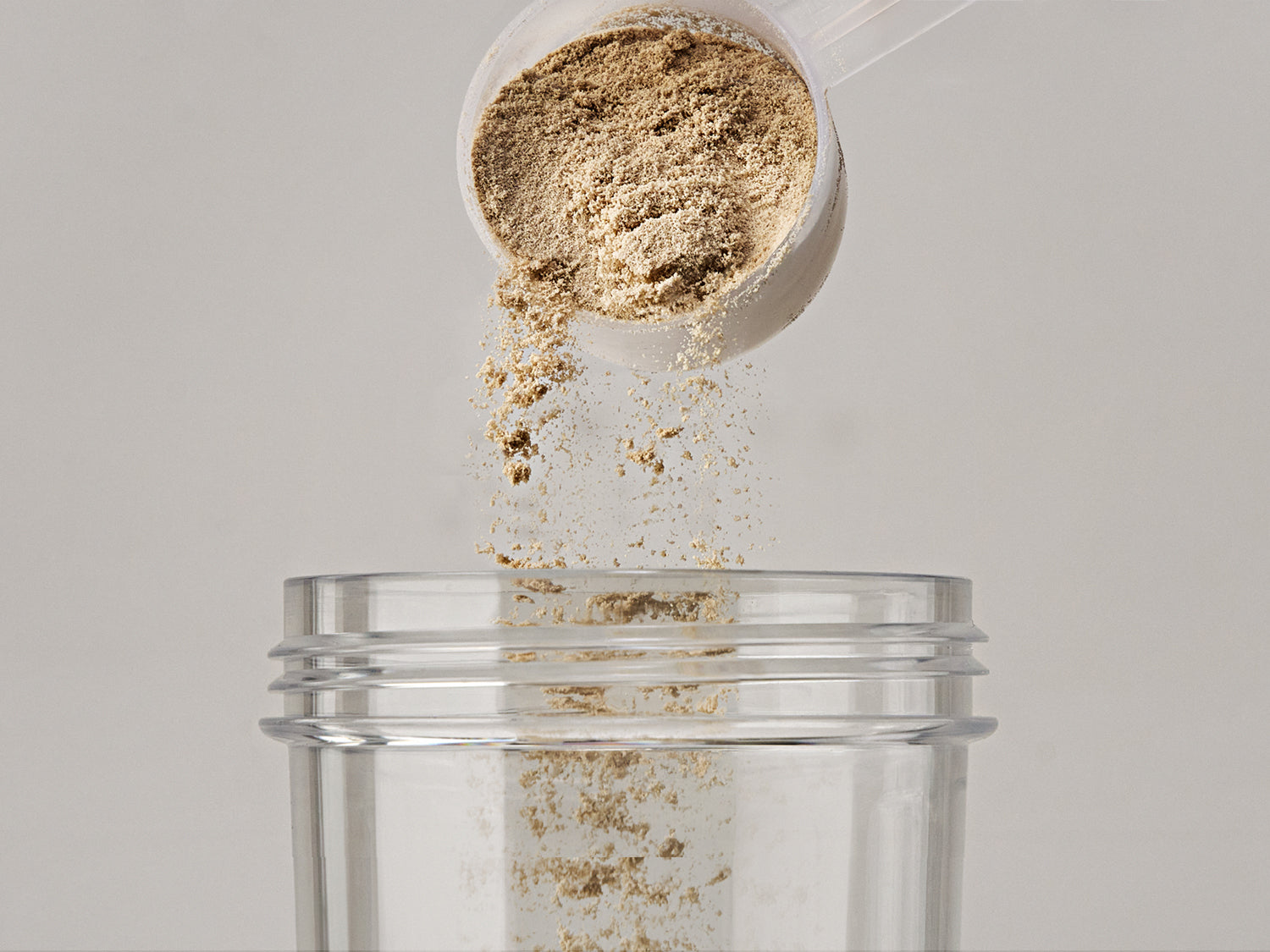Carnitine, a generic term for several compounds that include L-carnitine, acetyl-L-carnitine, and propionyl-L-carnitine, is a natural substance that the body uses to process fats and produce energy. Carnitine plays a critical role in energy production as it transports long-chain fatty acids into the mitochondria so they can be oxidized (or burned) to produce energy.
Derived from an amino acid, carnitine is found in nearly all cells of the body, and it is especially important for certain cells like muscle cells. Carnitine is also concentrated in tissues, such as skeletal muscle and cardiac muscle, that utilize fatty acids as dietary fuel.
You can get carnitine through the foods that you eat. Some good sources of carnitine are animal products such as meat, fish, poultry, and milk. As a rule of thumb, the redder the meat, the higher its carnitine content.
What Is L-Carnitine?
L-carnitine, also known as levocarnitine, is the standard biologically active form of carnitine, which is found in your body, foods, and most supplements.
L-carnitine is a conditionally essential nutrient, which means that the body can generally make enough of it. However, sometimes vegans or people with certain genetic issues may have to get the compound through L-carnitine supplementation if they’re unable to produce or obtain enough carnitine on their own.
What Does L-Carnitine Do?
L-carnitine’s main role in your body involves mitochondrial function and energy production. In cells, it helps transport fatty acids into the mitochondria where they can be burned for energy.
L-carnitine is also important for heart and brain function, muscle movement, and many other body processes.
Benefits of L-Carnitine In The Body
In addition to its core functions of helping break down fatty acids for use as energy and removing waste products from cells to prevent them from accumulating and causing problems, there are also several other health benefits of L-carnitine supplements, and carnitine in general.
1. Improved Exercise & Sports Performance
Some athletes take L-carnitine supplements believing that it will boost their athletic performance since L-carnitine availability seems to limit muscle metabolism during very high intensity exercise. Therefore, in theory, supplementing with carnitine during workouts may support exercise and sports performance.
And when it comes to L-carnitine’s effects on exercise and sports performance, studies suggest mild benefits associated with larger or more long-term doses.
Studies indicate that L-carnitine may improve exercise recovery, may increase oxygen supply to your muscles, and may improve stamina by increasing blood flow and nitric oxide production, which helps to delay discomfort and reduce fatigue. L-carnitine supplementation may also reduce muscle soreness after exercise and may increase the production of red blood cells, which transport oxygen throughout your body and muscles.
2. Improved Heart Health
L-carnitine may help with some markers of heart health since studies demonstrate a potential for reducing blood pressure and the inflammatory process associated with heart disease.
L-carnitine is also linked to improvements in patients with severe heart disorders such as coronary heart disease and chronic heart failure.
NOTE: The claim is made by the studies we have quoted and we rely on them to conclude on this.
3. Reduce Symptoms Of Type 2 Diabetes
Research suggests that L-carnitine may reduce symptoms of type 2 diabetes and its associated risk factors.
A study of people with type 2 diabetes taking anti-diabetic medication indicated that carnitine supplements significantly reduced blood sugar levels, compared to a placebo.
NOTE: The claim is made by the studies we have quoted and we rely on them to conclude on this.
3. Reduce Certain Symptoms During Cancer Treatments
At times, cancer treatments such as chemotherapy may cause people to become deficient in L-carnitine. In these cases, L-carnitine supplements may help reduce symptoms such as fatigue and weakness.
NOTE: The claim is made by the studies we have quoted and we rely on them to conclude on this.
Why Do People Use L-Carnitine?
Note: Please talk to a doctor before adding L-Cartine to your diet.
1. To Treat Carnitine Deficiency
Carnitine deficiency is when less than 10% of the nutrient carnitine is available to cells in the body. This can cause muscle weakness and heart or liver problems. The main treatment for carnitine deficiency is to take L-carnitine supplements, which is the usable form of carnitine. L-carnitine supplements can increase the amount of carnitine in the blood and inside cells, which can help prevent many of the symptoms of carnitine deficiency.
Also Read: 10 of the Fittest Cities in North America
2. To Enhance Exercise Capacity
Studies point to a positive impact of dietary supplementation with L-carnitine on the recovery process after exercise. A review, “L-Carnitine Supplementation in Recovery after Exercise,” published in the scientific journal, Nutrients, determined that the, “Scientific data indicates that the athletic population can benefit from L-carnitine intake as it attenuates the side effects of high-intensity training by reducing the magnitude of exercise-induced hypoxia and muscle injury.” The review also concluded that “recovery from exercise by L-carnitine supplementation is particularly beneficial to the healthy young active population.”
3. To Build Muscle Mass
A review concluded that, “Elderly experiencing lean muscle mass and function decline, reduced muscle L-carnitine content, and mitochondrial dysfunction can also benefit from the positive impact of supplementation with L-carnitine.” With a growing number of older subjects engaged in moderate exercise, the review expects the role of L-carnitine in this demographic to continue to gain importance since dietary supplementation with L-carnitine may help during the aging process by impeding the progression of muscle mass and function decline, as well as neurodegeneration.
4. For Improved Brain Function
L-carnitine – specifically acetyl-L-carnitine – can have beneficial effects on brain function in various diseases. Studies indicate that taking acetyl-L-carnitine daily helps reverse the decline in brain function associated with Alzheimer’s and other brain diseases.
5. For Weight Loss
L-carnitine may aid in weight loss for obese individuals or older adults, according to a systematic review that analyzed nine studies. However, the appropriate weight loss steps, which include a thorough diet and exercise regimen, must be in place first.
Absorption And Metabolism of L-Carnitine
Adults with diets that include red meat and other animal products obtain about 60 milligrams to 180 milligrams of carnitine per day, while vegans, who avoid animal-derived foods, get only about 10 milligrams to 12 milligrams of carnitine per day through their diets. The majority of dietary carnitine – between 54% to 86% – is absorbed by the small intestine and enters the bloodstream.
The kidneys can also store L-carnitine for later use. So, even carnitine-poor diets have little impact on the body’s total carnitine content. And rather than being metabolized, excess carnitine is excreted in the urine as needed via the kidneys to maintain stable blood concentrations.
When Is The Best Time To Take L-Carnitine?
If you’re taking L-carnitine to optimize your workout performance and increase your energy levels when exercising, you can take L-carnitine supplements approximately 30 minutes to an hour before your workout session begins. Another dose can be taken post-workout to aid recovery, as well.
However, it’s important for you to separate these doses throughout the day and make sure that you’re not exceeding recommended doses. Otherwise, that will undermine potential benefits, and could make you feel sick.
Recommended Intakes For L-Carnitine & Potential Side Effects
The body makes sufficient carnitine to meet the needs for most people. Healthy children and adults do not need to consume carnitine from food or dietary supplements since the liver and kidneys produce sufficient amounts from the amino acids lysine and methionine to meet daily needs. However, for your body to produce carnitine in sufficient amounts, you also need plenty of vitamin C.
The amount of L-carnitine, as well as the best form, may vary depending on an individual’s reason for wanting more carnitine. Most people tolerate L-carnitine well and the recommended dosage of L-carnitine is roughly 1 to 3 grams per day.
That said, 2 grams or less per day of L-carnitine is relatively safe and free from any serious side effects. However, at doses of 3 grams per day, carnitine supplements may cause side effects such as nausea, vomiting, abdominal cramps, diarrhea, and/or a strange body odor.
Visit our Shop to Buy the Best Body Building Supplements
Read Our Top Read Content:




